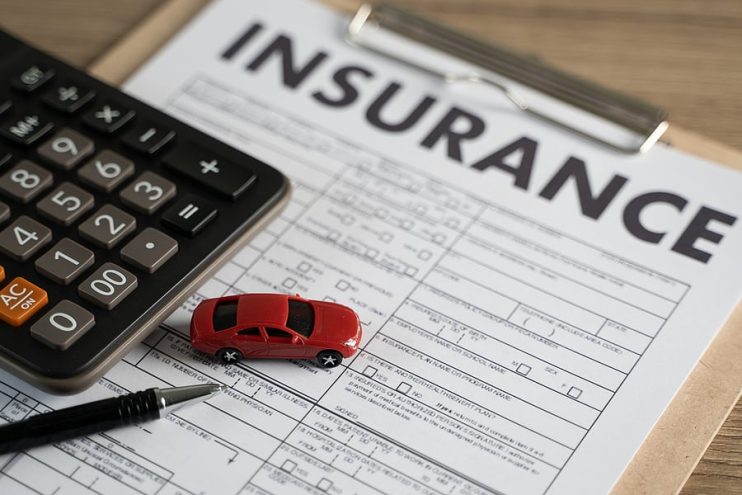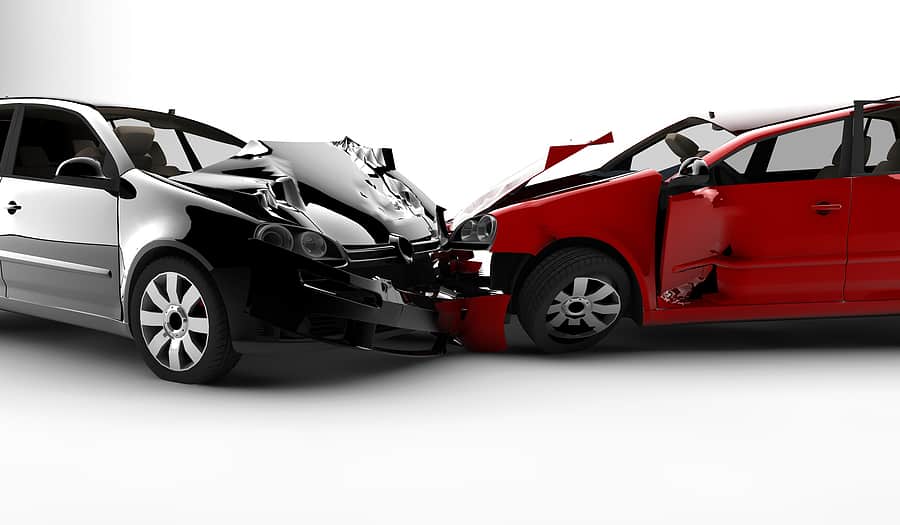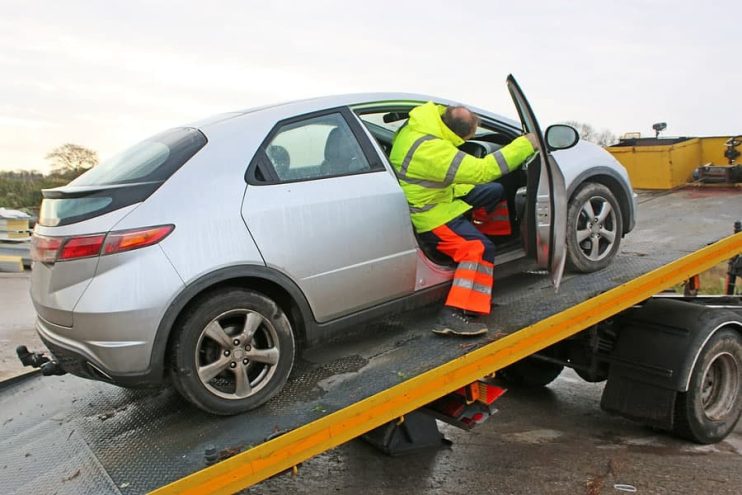
Like death and taxes, car insurance seems somewhat inevitable. You want to drive on UK roads? You must be covered by some kind of acceptable policy. But perhaps because you must have insurance, there is a lot of chit chat that goes around pubs, dinner tables and other social meeting places, which discusses the potential intricacies of costs, policies and covers.
If you’re one of those people who’ve whipped out your phone or powered up your computer to check on some rumours you’ve heard – then you’ve arrived in the right place. Let’s go through some of the most popular assertions and fact check them to see if they’re the real deal, or just some old fake news.
Table of contents:
Cost Myths
For many people insurance costs are a fact of life. But that doesn’t stop them from playing the game of looking for the same cover at a better price. As a result there’s plenty of conjecture out there as to what works and what doesn’t – but more importantly, what’s the truth?
New customers get better deals than loyal customers
You might be surprised to find that this is actually true. Even though the Financial Conduct Authority are trying to stop this practice, sweetener deals for new customers seem to still be available for those with the time and energy to switch around.
It’s best to let my policy auto-renew every year
As we mentioned above. It’s best to have a shop around. Even if you simply use the information to go back to your provider and use it to leverage a better price for your next year’s insurance policy.
Keeping your car in the garage lowers insurance prices
Not always, although it can help. Some insurers actually believe that keeping your car in a garage makes it a more attractive prize for thieves. Presumably because they know where it will be most of the time. Especially if your area has a high incidence of burglary and car theft.
Dan Hutson, Head of Motor insurance at Compare the Market:
“Motorists will be thrilled that the cost of car insurance has nosedived in the first quarter of this year. The drop in insurance claims seems to be trickling through to the cost of premiums. Drivers will appreciate the savings as many will be finding it more difficult to manage their finances during the pandemic. Premiums did initially start to sneak upwards in December 2020 but have since plummeted during the latest lockdown. This fall will be particularly good news for young drivers who typically face the highest premiums. Hopefully, more people will be encouraged to learn to drive as travel curbs are lifted and the fall in premiums makes it more affordable.
However, drivers will only be able to take advantage of the best savings on offer from lower premiums if they shop around when their policy comes up for renewal. Our research shows drivers could save £92 by switching to the cheapest deal.”
Source: comparethemarket.com
Driving your car for business means higher premiums that using it for social use
It can do with certain insurers, whilst others are more likely to view business users as being more confident, regular drivers who will look after their vehicles as an essential business tool.
At 25 years old – your premiums drop dramatically…
It’s always true that more years behind the wheel without an accident in a suitable vehicle should get you a lower premium (and if it doesn’t, then you may want to look at moving). However, there is no golden age where the insurer will suddenly believe that you should pay less because of a birthday.
Third party, fire and theft are always cheaper than fully comp
Again despite wide spread belief that this one is true, because the lesser policy is often taken out by more high risk drivers who are prepared to truck around in vehicles that are one ding away from being written off, the actual truth is third party cover might be a little more expensive.
Non fault claims don’t increase my premium
Insurers do their research and apparently if you file a no fault claim, there is a very significant chance that you will be at some point in the future filing a fault claim. As a result of this trend, it’s highly likely your premiums will increase.
Paying monthly is the same as paying one annual payment
Not at all. If you want to spread out the costs, expect to pay a little extra for processing costs and interest. Because it’s more difficult for the insurer to get their money, you’re going to have to pay more.
No claim this year? My premium should go down next year
Not if you were sold a deal as a new customer. This could be the year where your insurer tries to recoup their losses on the arrangement. Additionally you may have got to the best deal possible over the past 4-5 years, and now there’s no wiggle room what-so-ever in the arrangement.

Policy Myths
Legal policy information can vary wildly between providers. What myths are there around signing your policy – and which of them are true?
Get out insurance in your parents name – to lower the costs
It might lower the costs, but it doesn’t mean it’s legal. This practice is known as fronting and it’s insurance fraud. Don’t do it.
If I am involved in an accident – I don’t have to tell my insurer
Most insurance providers expect you to always tell them about any accident. Claims may come months later from other companies – and you’re always best giving them the facts when they are fresh in your mind.
I don’t have to tell insurers about my previous motoring convictions
You must tell insurers about current convictions on your license. Also there may be clauses in the policy that require you to mention convictions in a longer window (5 years and beyond), which will put you in contravention of the policy, if you fail to disclose the required information.
I don’t need insurance if I don’t use my car
Yes. This one is true, but you need to get the right documents signed off. Declare your car off the road with a Statutory Off Road Notice (SORN) and then keep it off the road on private land – and this doesn’t include your driveway, unfortunately, it must then be stored truly off the road.
Black box policies can impose curfews on your car use
Whilst this was true once upon a time, it is no longer the case. Black boxes look for stats on driving speed, braking, acceleration and mileage to alter your premiums. Driving carefully at all times is rewarded whether its 1pm or 1am.
Cover Myths
There’s a lot of talk about what a policy should cover. The truth is with the wide variety of policies now available, you may find that there’s no one size fits all approach…
Your insurance covers you for any accident that’s your fault
In most cases yes. However, if there are extenuating circumstances, such as a charge of driving without proper care and attention, or drink driving, then your claim could be dismissed. Equally if you are found to have caused deliberate damage, then this could also see your insurance failing to pay out.
You will always get a courtesy car to cover you whilst the insurance claim is getting resolved
Check your policy. Many insurers don’t provide courtesy cars, if your car is stolen or written off. If your car is damaged, then the vehicle may only be supplied if you use the insurer’s recommended mechanic. If you need a car, then read the fine print before signing.
Your comprehensive policy allows you to drive other cars
Many people believe this one to be true, but again it could be down to your policy. Some comp cover plans only let you get behind the wheel of another car in the event of an emergency, and others will charge you to be able to drive any vehicle.
You are always covered for glass and windscreen repair
Many providers now offer this as standard, as it has become a popular feature of many providers, pushing others to offer similar schemes to remain competitive. Again, check the policy before assuming it’s going to be there when you need it most.

Roadside assistance is always included in my policy
Not always. Some insurers do offer this as standard, but more commonly it will be offered to you as an upsell offer (by the phone operator or often in a tick box on insurance sales sites).
And Finally
The last myth is that claiming on your insurance is a nightmare. This isn’t always the case as you most insurers are now set up with dedicated claims teams, who can quickly and easily process your claim, and will even go as far as talking to the other insurance company. This is what you pay your insurer for – and you’ll be surprised at the simplicity of the process. After all, they are businesses set up to deal with this kind of thing.













.png)